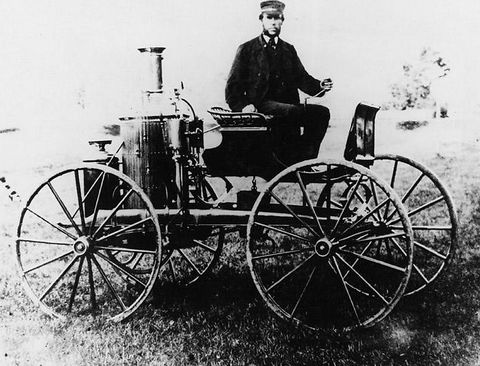Some months you work very hard and there is little to show for any of it… so far this is one of those very draining months. I’m looking forward to spring, and spending less time online and at work.
Rather than ranting I want to share a couple of things from elsewhere in the software world to show what we should be aiming towards in the world of GNOME and free operating systems.
Firstly, from “Is something bugging you?”:
Before we even started writing the database, we first wrote a fully-deterministic event-based network simulation that our database could plug into. … if one particular simulation run found a bug in our application logic, we could run it over and over again with the same random seed, and the exact same series of events would happen in the exact same order. That meant that even for the weirdest and rarest bugs, we got infinity “tries” at figuring it out, and could add logging, or do whatever else we needed to do to track it down.
The text is hyperbolic, and for some reason they think it’s ok to work with Palantir, but its an inspiring read.
Secondly, a 15 minute video which you should watch in its entirety, and then consider how the game development world got so far ahead of everyone else. Here’s a link to the video.
This is the world that’s possible for operating systems, if we focus on developer experience and integration testing across the whole OS. And GNOME OS + openQA is where I see some of the most promising work happening right now.
Of course we’re a looooong way from this promised land, despite the progress we’ve made in the last 10+ years. Automated testing of the OS is great, but we don’t always have logs (bug), the image randomly fails to start (bug), the image takes hours to build, we can’t test merge requests (bug), testing takes 15+ minutes to run, etc. Some of these issues seem intractable when occasional volunteer effort is all we have.
Imagine a world where you can develop and live-deploy changes to your phone and your laptop OS, exhaustively test them in CI, step backwards with a debugger when problems arise – this is what we should be building in the tech industry. A few teams are chipping away at this vision – in the Linux world, GNOME Builder and the Fedora Atomic project spring to mind and I’m sure there are more .
Anyway, what happened last month?
Outreachy
This is the final month of the Outreachy internship that I’m running around end-to-end testing of GNOME. We already had some wins, there are now 5 separate testsuites running against GNOME OS, unfortunately rather useless at present due to random startup failures.
I spent a *lot* of time working with Tanju on a way to usefully test GNOME on Mobile. I haven’t been able to follow this effort closely beyond seeing a few demos and old blogs. This week was something of a crash course on what there is. Along the way I got pretty confused about scaling in GNOME Shell – it turns out there’s currently a hardcoded minimum screen size, and upstream Mutter will refuse to scale the display below a certain size. In fact upstream GNOME Shell doesn’t have any of the necessary adaptations for use in a mobile form factor. We really need a “GNOME OS Mobile” VM image – here’s an open issue – it’s unlikely to be done within the last 2 weeks of the current internship, though. The best we can do for now is test the apps on a regular desktop screen, but with the window resized to 360×720 pixels.
On the positive side, hopefully this has been a useful journey for Tanju and Dorothy into the inner workings of GNOME. On a separate note, we submitted a workshop on openQA testing to GUADEC in Denver, and if all goes well with travel sponsorship and US VISA applications, we hope to actually meet in person there in July.
FOSDEM
I went to FOSDEM 2024 and had a great time, it was one of my favourite FOSDEM trips. I managed to avoid the ‘flu – i think wearing a mask on the plane is the secret. From Codethink we were 41 people this year – probably a new record.
I went a day early to join in the end of the GTK hackfest, and did a little work on the Tiny SPARQL database, formerly known as Tracker SPARQL. Together with Carlos we fixed breakage in the CLI, improved HTTP support and prototyped a potential internship project to add a web based query editor.
My main goal at FOSDEM was to make contact with other openQA users and developers, and we had some success there. Since then i’ve hashed out a wishlist for openQA for GNOME’s use cases, and we’re aiming to set up an open, monthly call where different QA teams can get together and collaborate on a realistic roadmap.
I saw some great talks too, the “Outreachy 1000 Interns” talk and the Fairphone “Sustainable and Longlasting Phones” were particular highlights. I went to the Bytenight event for the first time and and found an incredible 1970’s Wurlitzer transistor organ in the “smoking area” of the HSBXL hackspace, also beating Javi, Bart and Adam at Super Tuxcart several times.














 Spring is here and it is the 10th anniversary celebration of Codethink. Nobody could have orchestrated it this way but we also have GUADEC happening here in Manchester in a few months and it’s the 20th anniversary of GNOME. All roads lead to Manchester in 2017!
Spring is here and it is the 10th anniversary celebration of Codethink. Nobody could have orchestrated it this way but we also have GUADEC happening here in Manchester in a few months and it’s the 20th anniversary of GNOME. All roads lead to Manchester in 2017!